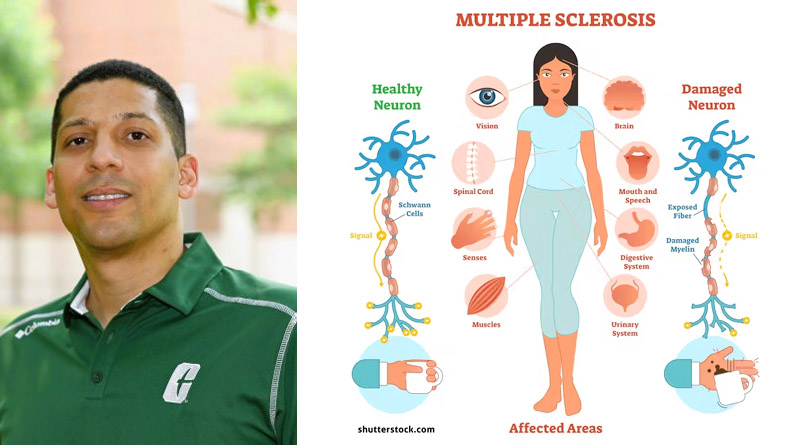Charlotte Professor Creates Breakthrough In Multiple Sclerosis Research
A groundbreaking study published today in Nature Medicine reveals a significant advancement in the early detection of multiple sclerosis (MS), a chronic and potentially disabling disease of the central nervous system. Researchers have identified a specific autoantibody signature that appears in about 10% of MS patients years before the first clinical symptoms emerge, potentially offering a new way to predict and combat the disease before it takes hold.
Danillo Augusto, Ph.D., assistant professor of biology at UNC Charlotte and co-author of the study, explained the importance of these findings. “This study sheds light on the preclinical phase of MS and provides a promising avenue for early detection and intervention. Identifying patients at high risk of developing MS before symptom onset could revolutionize patient care and treatment strategies,” he said.
The study utilized the extensive U.S. Department of Defense Serum Repository, which includes samples from over 10 million individuals. Researchers performed whole-proteome autoantibody profiling on samples collected from hundreds of MS patients both before and after they began showing symptoms. They found a distinct group of patients with an autoantibody signature that targets a common pattern. Importantly, these patients showed signs of antibody reactivity years before any MS symptoms appeared and also had elevated levels of serum neurofilament light (sNfL), a marker of early neuroaxonal damage.
Further tests confirmed the high specificity of this autoantibody signature in a separate MS cohort, marking a pivotal moment in MS research. This discovery could lead to the development of specific biomarkers for individuals at high risk of developing MS who show clinical or radiological signs of neuroinflammatory syndromes.
The study’s lead researcher, Michael Wilson, M.D., professor of neurology at the University of California, San Francisco, expressed optimism about the implications of this research. “Identifying this autoantibody signature offers hope for improved early diagnosis and intervention in MS, potentially leading to better patient outcomes,” he noted. Ongoing research aims to further understand the immunological mechanisms at play and explore the broader diagnostic and therapeutic potential of these findings.

